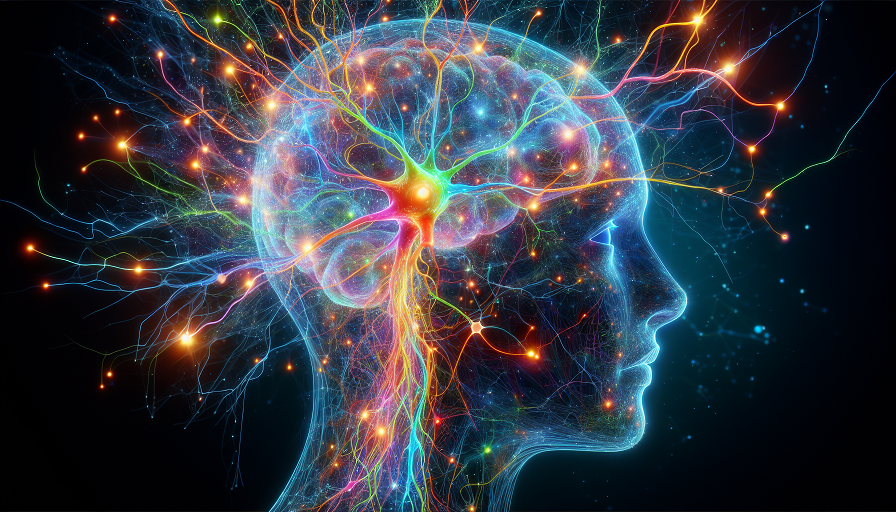
The quest for brain longevity—maintaining cognitive function, preventing neurodegenerative diseases, and promoting brain plasticity—has led researchers to explore the power of natural antioxidants. Among the most promising are Resveratrol and Quercetin, two polyphenols known for their neuroprotective and anti-aging effects.
Resveratrol is a potent sirtuin activator that enhances cellular longevity and brain resilience, while Quercetin is a strong flavonoid with anti-inflammatory and neuroprotective effects. But which one is superior for preserving brain function and preventing cognitive decline?
Contents
Why Brain Longevity Matters
As we age, our brain undergoes several changes that contribute to cognitive decline and increase the risk of neurodegenerative diseases like Alzheimer’s and Parkinson’s. Key factors affecting brain longevity include:
- Oxidative Stress: Free radical damage accelerates neuron loss and cognitive impairment.
- Inflammation: Chronic neuroinflammation is a major driver of Alzheimer’s and other cognitive disorders.
- Mitochondrial Dysfunction: The brain requires high amounts of energy, and impaired mitochondrial function reduces cognitive efficiency.
- Neurotransmitter Decline: Aging disrupts neurotransmitter balance, affecting memory and mood.
- Loss of Synaptic Plasticity: The ability to form and strengthen neural connections weakens over time.
Both Resveratrol and Quercetin have been studied for their ability to counteract these aging-related changes, but they work through different mechanisms.
The Role of Sirtuins in Brain Aging
One of the most important factors in brain longevity is the activation of sirtuins, a family of proteins that regulate cellular aging, repair DNA damage, and control inflammation. Sirtuins, especially SIRT1, play a crucial role in protecting neurons and maintaining cognitive function.
How Sirtuins Impact Brain Longevity
- Enhancing Neuroprotection: Sirtuins help prevent neuron loss and promote cellular resilience.
- Reducing Inflammation: SIRT1 suppresses inflammatory pathways linked to Alzheimer’s disease and neurodegeneration.
- Boosting Mitochondrial Health: Sirtuins improve mitochondrial efficiency, which is crucial for energy-demanding brain functions.
- Increasing Longevity Genes: Sirtuin activation has been linked to increased lifespan and healthier aging.
Since Resveratrol is a known sirtuin activator, it has gained significant attention for its ability to slow brain aging and enhance cognitive function.
What Is Resveratrol?
Overview
Resveratrol is a polyphenol found in red wine, grapes, blueberries, and peanuts. It has gained attention for its ability to activate sirtuins, a group of proteins that regulate cellular aging and longevity.
How Resveratrol Supports Brain Longevity
Resveratrol promotes brain health and longevity through several key mechanisms:
- Sirtuin Activation (SIRT1): Sirtuins regulate cell repair, DNA stability, and neuronal survival.
- Reduces Oxidative Stress: Resveratrol neutralizes free radicals, protecting neurons from damage.
- Enhances Mitochondrial Function: It boosts energy production, improving brain efficiency.
- Supports Cerebral Blood Flow: By increasing nitric oxide production, Resveratrol enhances blood circulation to the brain.
- Anti-Inflammatory Effects: It suppresses pro-inflammatory cytokines linked to cognitive decline.
Scientific Research on Resveratrol
Several studies highlight Resveratrol’s role in cognitive preservation and neuroprotection:
- A study in Frontiers in Aging Neuroscience found that Resveratrol supplementation improved memory and blood flow in older adults.
- Research published in Nature suggested that Resveratrol activates SIRT1, extending neuronal lifespan.
- A clinical trial in Neurobiology of Aging reported that Resveratrol slowed cognitive decline in patients with early-stage Alzheimer’s.
What Is Quercetin?
Overview
Quercetin is a flavonoid antioxidant found in apples, onions, capers, and green tea. It is known for its anti-inflammatory, antiviral, and neuroprotective properties.
How Quercetin Supports Brain Longevity
Quercetin protects the brain in multiple ways:
- Reduces Neuroinflammation: Suppresses inflammatory pathways that contribute to cognitive decline.
- Enhances Blood-Brain Barrier Integrity: Strengthens the protective barrier that prevents toxins from entering the brain.
- Protects Against Neurodegenerative Diseases: Has been shown to reduce amyloid plaque formation in Alzheimer’s models.
- Boosts Glutathione Levels: Increases the brain’s natural antioxidant defenses.
- Modulates Dopamine and Serotonin: May enhance mood and cognitive flexibility.
Scientific Research on Quercetin
Studies confirm Quercetin’s neuroprotective effects:
- A study in Neuropharmacology found that Quercetin reduces brain inflammation and oxidative stress.
- Research in Journal of Alzheimer’s Disease showed that Quercetin supplementation decreased amyloid plaque accumulation.
- A clinical trial in Neuroscience Research reported that Quercetin improved cognitive flexibility and memory in aging adults.
Resveratrol vs. Quercetin: Key Differences
| Factor | Resveratrol | Quercetin |
|---|---|---|
| Primary Benefit | Sirtuin activation and mitochondrial support | Anti-inflammatory and antioxidant protection |
| Best For | Longevity, cerebral blood flow, brain energy | Reducing neuroinflammation, protecting neurons |
| Mechanism | Boosts SIRT1, improves mitochondria | Blocks inflammatory pathways, protects BBB |
Can You Take Resveratrol and Quercetin Together?
Since Resveratrol and Quercetin work through different but complementary mechanisms, taking them together may provide enhanced cognitive and longevity benefits.
How They Work in Synergy
- Resveratrol Activates Longevity Pathways: It stimulates sirtuins to promote brain cell longevity.
- Quercetin Reduces Neuroinflammation: It helps lower chronic inflammation that contributes to neurodegeneration.
- Improved Absorption: Quercetin has been shown to enhance Resveratrol’s bioavailability, making it more effective.
- Better Brain Circulation: Both compounds support cerebral blood flow, ensuring optimal oxygen and nutrient delivery to neurons.
Best Practices for Taking Resveratrol and Quercetin Together
- Dosage: A common stack includes 250-500 mg of Resveratrol and 500-1,000 mg of Quercetin daily.
- Timing: Resveratrol is best taken in the morning or with food, while Quercetin can be taken once or twice daily.
- Absorption Tips: Since Resveratrol is fat-soluble, taking it with a meal containing healthy fats improves absorption.
For individuals looking to maximize brain longevity, combining Resveratrol and Quercetin is an excellent approach to supporting neuronal health, cognitive function, and inflammation control.
Final Verdict: Which One Should You Choose?
- Choose Resveratrol if you want to enhance brain longevity, mitochondrial function, and sirtuin activation.
- Choose Quercetin if you need strong anti-inflammatory protection and brain detoxification.
- For comprehensive neuroprotection, taking both together can provide synergistic benefits.

